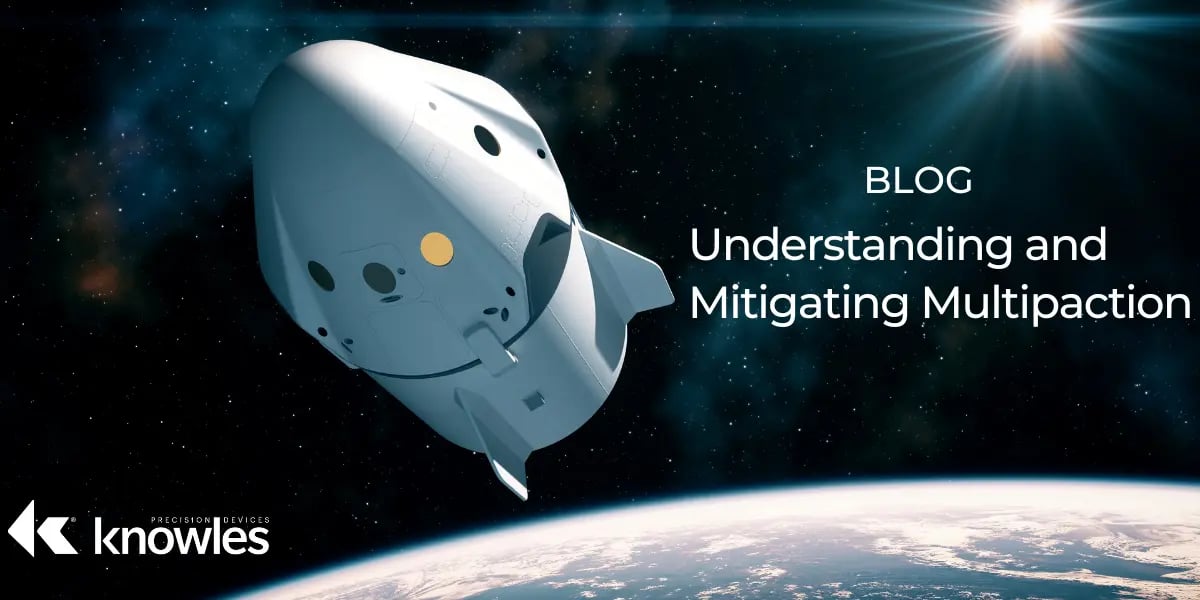When developing mission-critical space applications such as low Earth orbit (LEO) satellites or equipment designed for Mars missions, there are special considerations you must make if you will be operating your RF circuits in a vacuum. This is because when pressure in the vacuum is below 10-2 Torr, a potentially catastrophic phenomenon in RF circuits called multipaction is possible.
What Is Multipaction and What Causes It?
In short, multipaction is an electron resonance effect that can occur when free electrons present in a vacuum accelerate and impact a surface. It is common to have free electrons present in an RF device either between conducting surfaces or if the electrons are ejected from the surface dielectric through the strength of the RF field. These free electrons can then be subjected to acceleration by the RF field.
If nothing interferes with the accelerated free electron, such as gas atoms, this electron can travel quite far to impact a surface. This impact can cause a secondary electron emission from that surface, adding to the free electrons present and potentially creating an avalanche-like effect in the device as the newly emitted electrons can be accelerated and impact the surface as well. This can cause the number of accelerated electrons in the field to grow exponentially.
Why is Multipaction a Problem for Space Systems?
In RF space systems, multipaction can cause RF signal loss and distortion and it can increase the noise figure or bit-error-rate. These issues can cause excess RF power to reflect or dissipate, leading to damage to RF components or subsystems that may cause a total communication failure for a satellite for example.
What Can I Do to Mitigate Multipaction During Design?
To reduce the probability of multipaction occurring, proper component and transmission-line design is needed. At Knowles Precision Devices, we have extensive space heritage and are well positioned to help you mitigate multipaction concerns during your design phase. In the past two decades, we have worked with organizations to design components for 13 separate Mars missions where each mission had severe multipaction concerns that we needed to mitigate.
Whenever we work with a customer designing a mission-critical space application, we help mitigate multipaction concerns upfront by discussing the mission risk profile and needs when it comes to resistance to multipaction. Once we have a better understanding of the application and potential risks, there are a variety of mitigation techniques we can employ. On the component design side, we can make changes such as constructing gas-filled laser-welded enclosures or coating surfaces in special materials as needed. We can also conduct extensive testing to catch multipaction at the component level. For example, to ensure the efficacy of the communications payload, we can collaborate closely with customers to conduct a thorough component investigation at high power in vacuum.
Talk to one of our engineers today to discuss your application and how we can work together to mitigate concerns over multipaction, or learn more about how we screen components for space applications.


